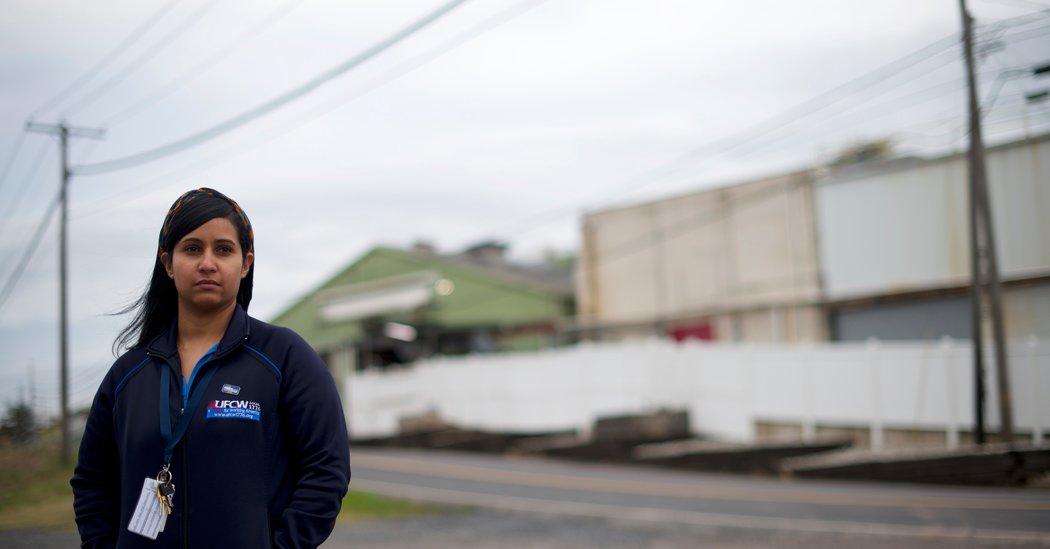SOUDERTON, Pa. — On a normal day, work at a meatpacking plant is not easy. The slaughterhouse is boiling hot. People who aren’t used to the temperature can feel as if they are experiencing high blood pressure. The freezer is super cold and will amplify any flulike symptoms. Workers wear as many layers as they can to stay warm, but it is difficult.
In the past month, two of my co-workers died from Covid-19. The company instituted protective measures, but it was too late. The virus spread quickly through our communities. I work in a plant with 1,400 employees. A majority of us are immigrants. Companywide communications are translated into Spanish, Arabic and Haitian Creole.
Our work is essential to feeding the nation, yet plants like mine have become hot spots for the virus. On Tuesday, President Trump said that he would declare meat processing plants “critical infrastructure” to avoid a shortage in the supply chain. Already, thousands of meatpacking workers across the country have become sick at work.
Our union, the United Food & Commercial Workers, demanded at the national level that meatpacking plants restructure themselves to accommodate safety measures and provide personal protective equipment to all employees. Our plant temporarily closed on April 2, before the deaths. At that time, 19 people had tested positive. JBS remodeled the floor in line with coronavirus safety measures secretary of health for Pennsylvania, Dr. Rachel Levine, ordered. The doors reopened on April 20.
Before this closure, people had started to panic. Social distancing was limited. Employees didn’t cover their mouths. In meatpacking plants, workers are piled up on top of one another, often touching because there are so many of us. Many decided to stay at home on leave because they were afraid of becoming infected or of spreading the coronavirus to their families.
In this pandemic we have to live day to day. Now we feel a bit more secure. Employees’ temperatures are taken the moment they walk inside to start their shift. Each person is given a mask and a face shield to wear. There are more hand sanitizer stations, and workers are given time to wash their hands. In the cafeteria, the tables are separated so that people don’t have contact. On the floor there are guides so that people know how far apart they should be from one another. There are signs in multiple languages, reminding people to wash their hands often, wear a mask and stay at least six feet apart. Supervisors monitor the flow of employees to make sure there is distancing in the hallways and break areas.
The two people we lost to the coronavirus were most likely exposed to the virus at work before the factory shut down. One, Wilbert Rivera, 49, was already fighting cancer and was on leave. The other was our principal union steward, a 70-year-old Haitian man named Enock Benjamin. He worked at the plant for 12 years and did so much to defend the rights of his colleagues. He was diabetic and suffered from asthma. He loved to work, and he worked until the last moment he could. They will not be forgotten.
During this pandemic, we are living day to day. We don’t know the new dangers that we will face in the future. We have to act quickly to protect our essential workers.
Ms. Dominguez is a union steward at the JBS beef plant in Souderton, Pa.
The Times is committed to publishing a diversity of letters to the editor. We’d like to hear what you think about this or any of our articles. Here are some tips. And here’s our email: [email protected].
Follow The New York Times Opinion section on Facebook, Twitter (@NYTopinion) and Instagram.


















